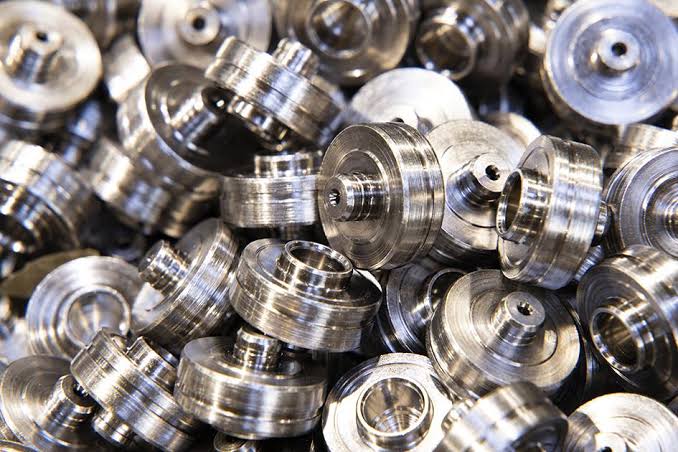RockShox, a leading brand in the mountain biking world, is renowned for its innovative suspension systems. These components are crucial for delivering smooth rides, absorbing shocks, and enhancing the overall performance of a bike. However, in the quest for the best materials to ensure durability and performance, some substances, like nickel-phosphor-PTFE, are notably absent from RockShox’s manufacturing process. But why? Let’s dive into the details and uncover the reasons behind this decision.
Understanding Nickel-Phosphor-PTFE Coatings
Before we get into why nickel-phosphor-PTFE is not used in RockShox products, it’s essential to understand what this material is and where it’s commonly applied.
Nickel-phosphor-PTFE (Polytetrafluoroethylene) is a composite coating that combines nickel, phosphorous, and PTFE (commonly known as Teflon). This mixture is well-known for its excellent lubricating properties, corrosion resistance, and low friction. These characteristics make it a popular choice in various industries, including automotive, aerospace, and even kitchen appliances.
The Role of Material Selection in Suspension Systems
RockShox suspension systems are engineered to provide optimal performance, durability, and reliability. The choice of materials plays a critical role in achieving these goals. Materials used in suspension components need to withstand significant stress, wear, and environmental factors such as dirt, water, and varying temperatures.
Key Material Requirements:
- Durability: The material must be able to endure repeated impacts and stress without degrading over time.
- Friction Reduction: Lowering friction is vital to ensure smooth operation and reduce wear.
- Weight: Lightweight materials are preferred to avoid adding unnecessary weight to the bike.
- Corrosion Resistance: Exposure to the elements means the material must resist rust and corrosion.
Why Nickel-Phosphor-PTFE is Not the Go-To Material for RockShox
Given its advantageous properties, you might wonder why nickel-phosphor-PTFE isn’t the preferred choice for RockShox suspension systems. Here are some reasons:
1. Wear and Tear Concerns
While nickel-phosphor-PTFE coatings are known for reducing friction, they can also wear off over time, especially under the continuous, high-stress conditions typical in mountain biking. RockShox components are subjected to repetitive shocks and intense friction, which could cause this coating to degrade faster than more durable alternatives.
2. Cost-Effectiveness
Manufacturing components with nickel-phosphor-PTFE coatings can be more expensive than using other materials. RockShox aims to balance performance with affordability, ensuring their products are accessible to a broad range of cyclists. The added cost of this coating might not justify the marginal gains in performance, especially when other materials can offer comparable or even superior benefits at a lower cost.
3. Material Compatibility
The compatibility of materials used in suspension systems is crucial for optimal performance. RockShox uses materials specifically selected for their ability to work together without compromising the system’s integrity. Introducing nickel-phosphor-PTFE could interfere with these finely-tuned interactions, potentially leading to issues like uneven wear or reduced lifespan of the suspension components.
4. Weight Considerations
Although nickel-phosphor-PTFE offers excellent corrosion resistance and low friction, it may not be the lightest option available. For high-performance mountain biking, every gram counts. Heavier materials could negatively impact the bike’s handling and overall efficiency, making lightweight alternatives more appealing for use in RockShox products.
Alternative Materials in RockShox Suspension Systems
RockShox prefers using materials that align perfectly with their performance goals. For instance, they often utilize:
- Anodized Aluminum: This material is lightweight, durable, and resistant to corrosion. The anodizing process also reduces friction, making it a solid choice for suspension systems.
- Steel Alloys: Selected for their strength and durability, steel alloys can withstand the rigors of mountain biking while providing a reliable performance.
- Advanced Polymers: These are used in seals and bushings to reduce friction and improve the longevity of the suspension system.
Conclusion
In conclusion, while why is nickel-phosphor-ptfe not used in rocshox coatings offer some impressive benefits, they aren’t the best fit for RockShox suspension systems. Issues such as wear and tear, cost, material compatibility, and weight considerations make this material less suitable for the demands of high-performance mountain biking. Instead, RockShox opts for other materials that better align with their goal of delivering top-tier, durable, and efficient suspension components.
FAQs
1. What is nickel-phosphor-PTFE? Nickel-phosphor-PTFE is a composite coating that combines nickel, phosphorous, and PTFE (Teflon) to create a material known for its low friction, corrosion resistance, and durability.
2. Why isn’t nickel-phosphor-PTFE used in RockShox products? RockShox does not use nickel-phosphor-PTFE due to concerns about wear under stress, cost-effectiveness, material compatibility, and weight considerations.
3. What materials does RockShox use instead? RockShox commonly uses anodized aluminum, steel alloys, and advanced polymers to create durable, lightweight, and efficient suspension systems.
4. Is nickel-phosphor-PTFE suitable for any biking components? While it’s not ideal for suspension systems like those in RockShox, nickel-phosphor-PTFE can be used in other components where lower stress and friction reduction are priorities.
5. How does RockShox ensure the durability of their suspension systems? RockShox carefully selects materials like anodized aluminum and steel alloys that are proven to withstand the demands of mountain biking, ensuring long-lasting performance.


